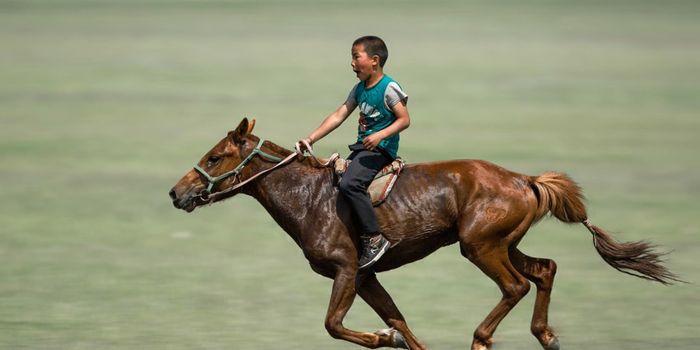These Spiders Risk Their Lives to Find a Mate
When you’re just an itsy-bitsy spider, you tend to be particularly vulnerable to predation by the plethora of larger animals all around you, like birds. Being involved in this situation might make you more inclined to blend in with your surroundings, and that’s precisely what the male wolf spider does… at least most of the time.
Image Credit: Andrew Higley/UC Creative Services
Citing the results of a study published in the journal Behavioral Processes, it seems that love may drive male wolf spiders to risk their well-being for a chance to mate with a viable female. With that in mind, perhaps what they say is true: love might be a type of insanity.
In case you’ve never witnessed a wolf spider before, their bodies are covered in unique color patterns that help them camouflage with their surroundings. With that in mind, the arachnids often take full advantage of this and remain completely motionless in the presence of a predator to be inconspicuous to even the most keen-eyed of the bunch.
Mind-bogglingly, however, the male wolf spider’s courtship behavior in the presence of a viable mating female goes against this seemingly common-sense behavior. Rather than being still, slow, and inconspicuous, the male seems to risk everything by rattling their legs and causing a scene to impress nearby females, a dicey move that would blow the spider’s cover.
To test the theory that a male wolf spider’s courtship dance makes the arachnids more prone to predation, the team set up a video screen on the floor to simulate a bird’s-eye view from above and then trained blue jay birds to peck at buttons when they saw something. Perhaps unsurprisingly, the blue jays had no trouble at all discerning the dancing spiders, but they had less success in discerning the still ones.
"By courting the way they do, they are clearly putting themselves at risk of bird predation," explained George Uetz, a biologist at the University of Cincinnati and a co-author of the study. "The displays and the decorations show off male quality. The males that display vigorous courtship and robust leg tufts are showing off their immune competence and overall health. They, in turn, will have sons that have those qualities."
Related: This cockroach-eating wasp controls its prey's mind before eating it
Blue jays aren’t the only birds that will eat wolf spiders, and so the male’s attempt to woo a nearby female makes them particularly prime targets for any nearby predatory birds. To make matters worse, birds tend to have sharper vision than other animals, and this leaves the spiders at a significant disadvantage.
While natural selection typically conditions a species to survive amid possible disruptions, the researchers describe this as a tradeoff between natural selection and sexual selection, with the latter taking the cake. Without risking everything to display their physical quality to nearby females, those male wolf spiders would never get a chance to reproduce, and so the species would cease to exist.
"Natural selection is selection for survival, which would lead to spiders that are less conspicuous to predators," explained Tricia Rubi, the paper’s lead author. "But sexual selection is driven by females. And they select for a more conspicuous display."
"The longest-lived male can still have a fitness of 'zero' if he never mates," she continued. "So there appears to be a trade-off between being safe and being sexy. That balance is what shapes these courtship displays."
Related: Horseshoe crabs are relatives of spiders and scorpions
So are the male wolf spiders insane for doing what they do? Perhaps, but if they don’t, then they won’t survive anyway; they’re just doing what they’ve got to do to ensure successful reproduction.
While the results of this study were particularly compelling, it should be interesting to see if future studies come to the same conclusion. After all, it’s a fascinating subject, to say the least.









